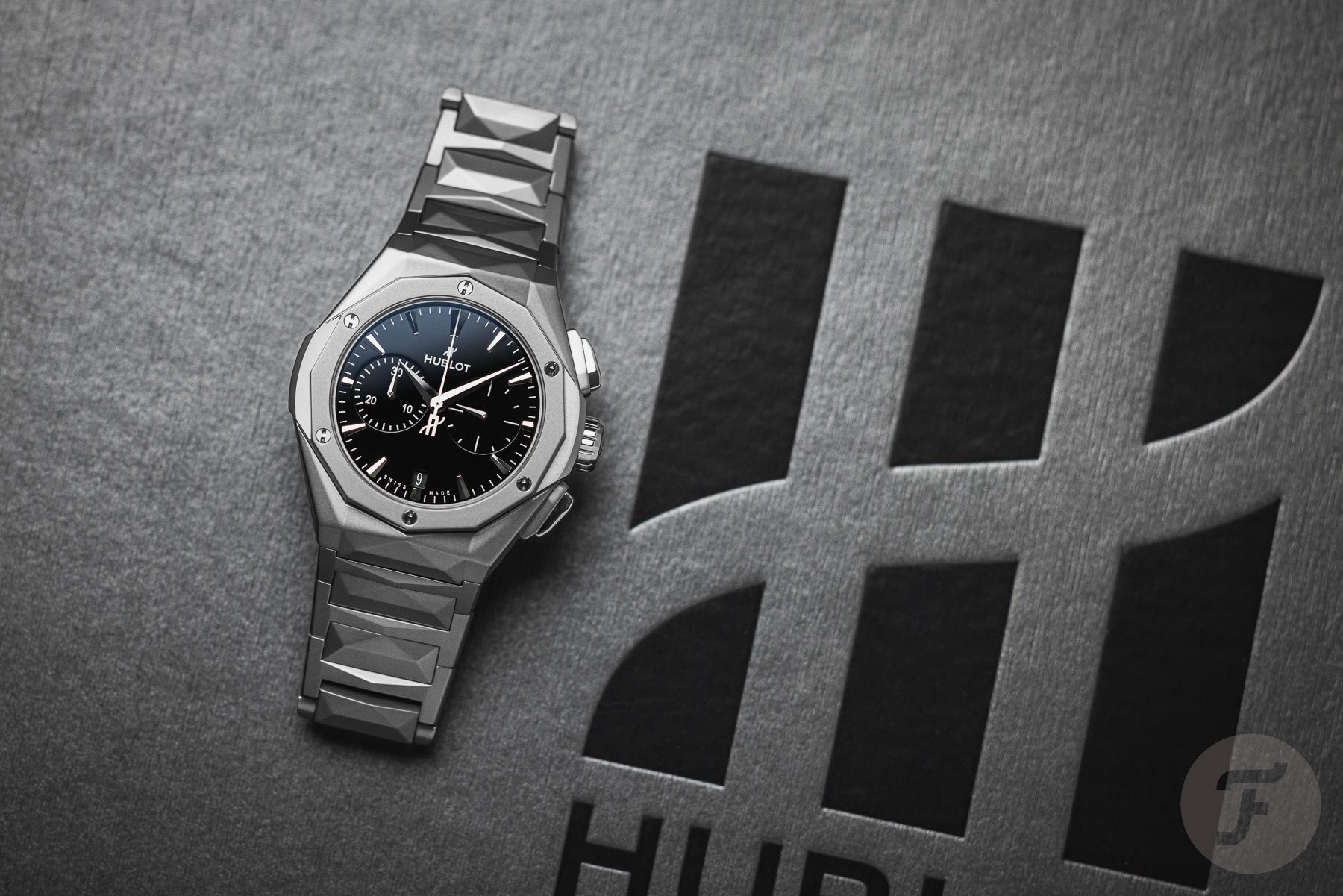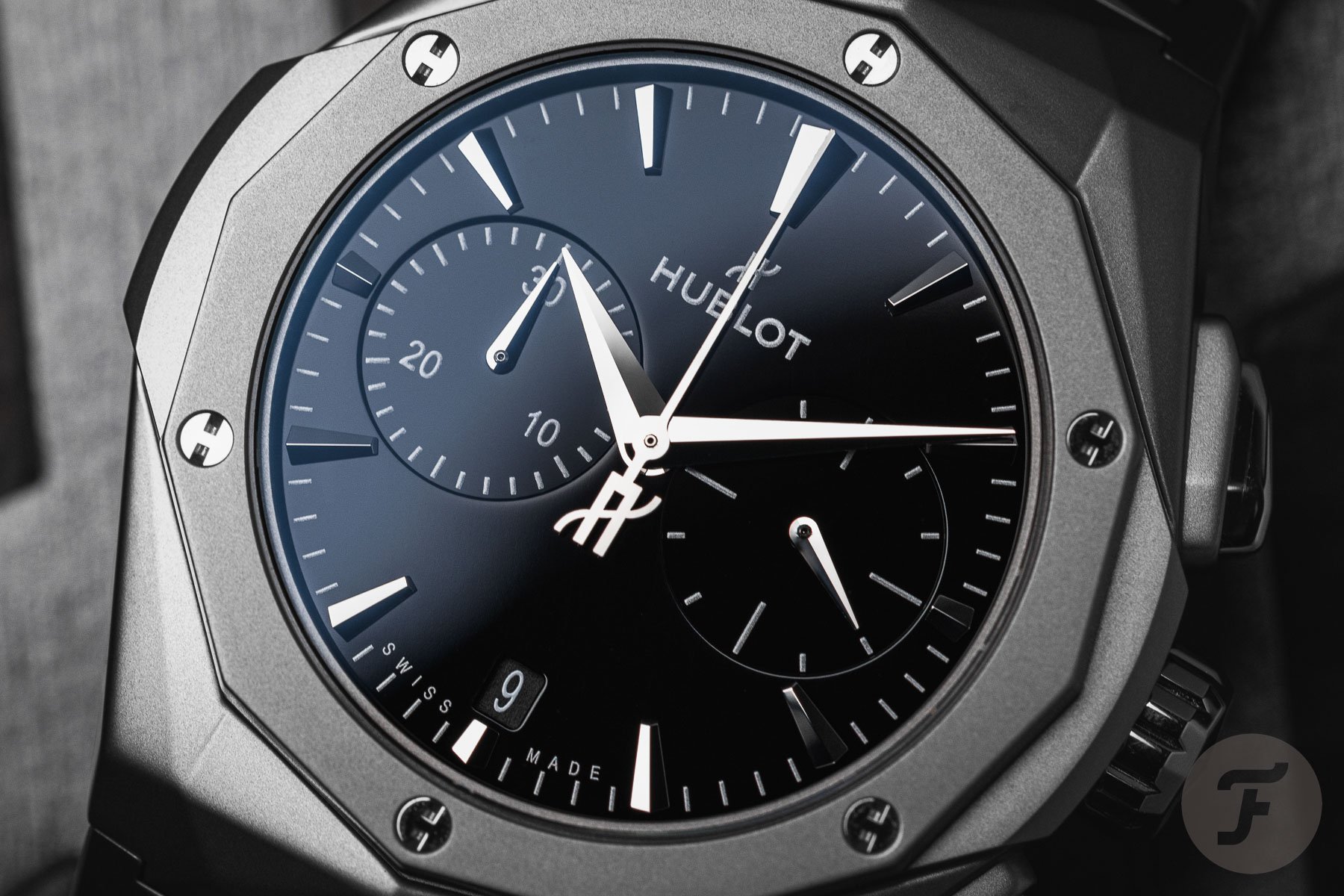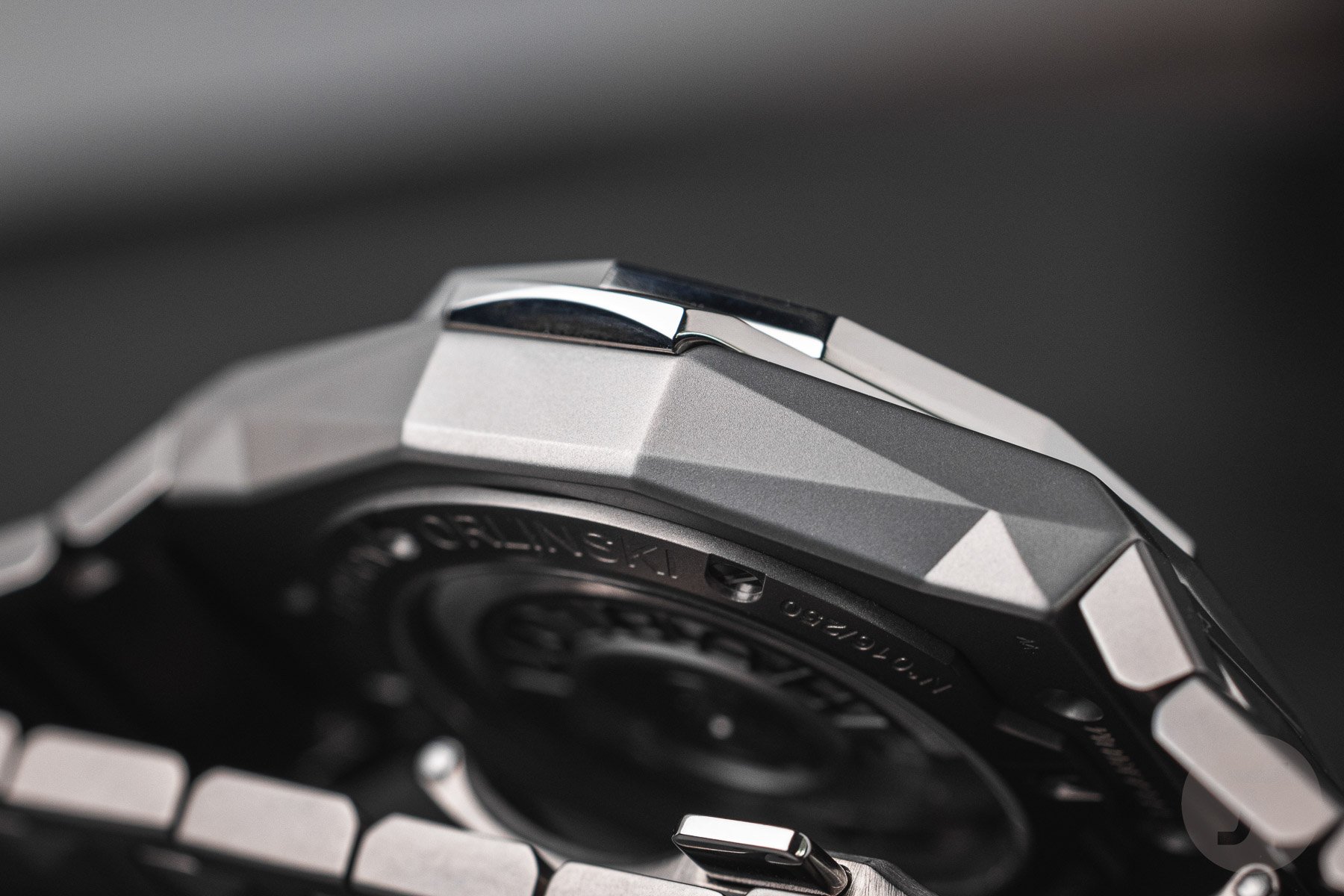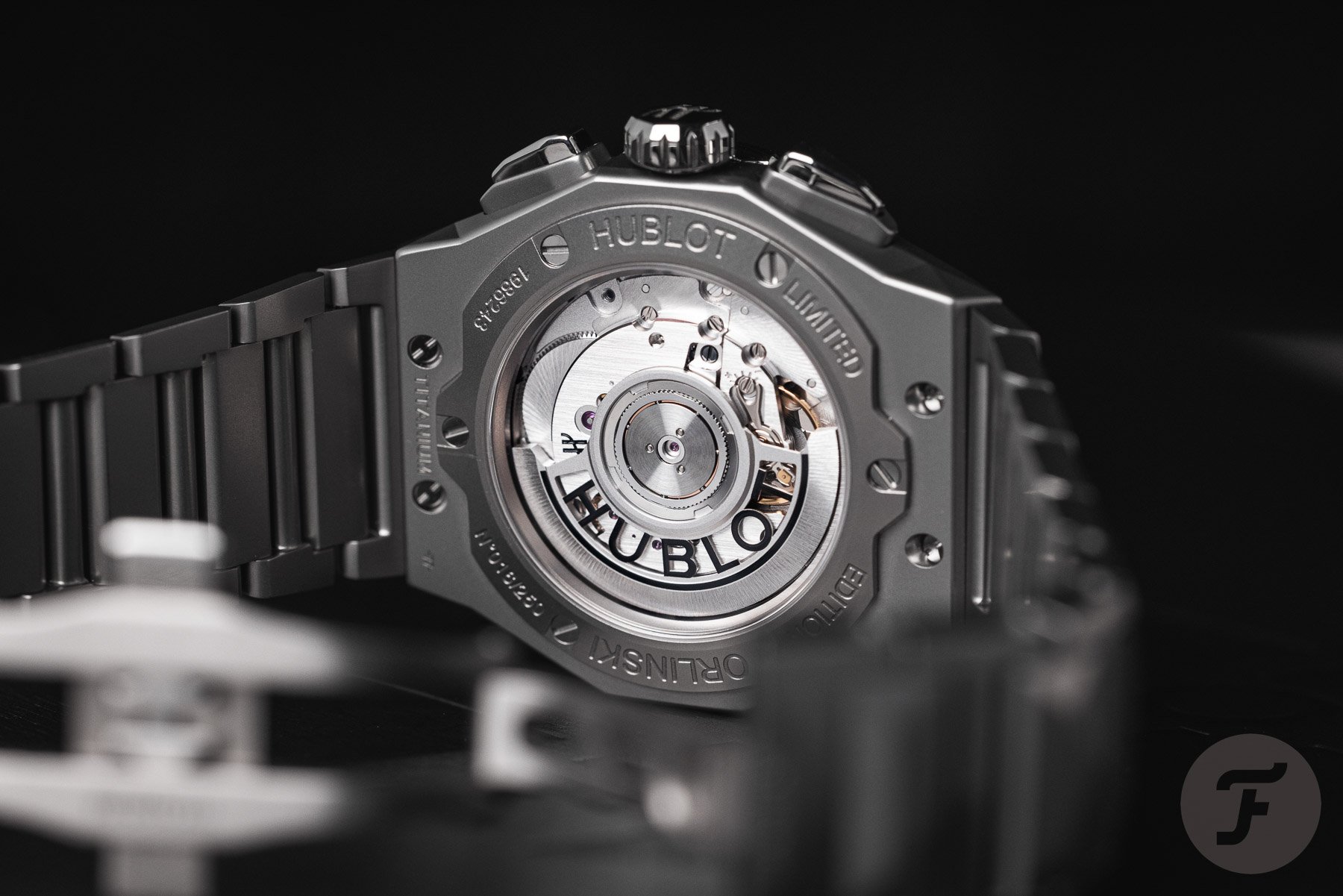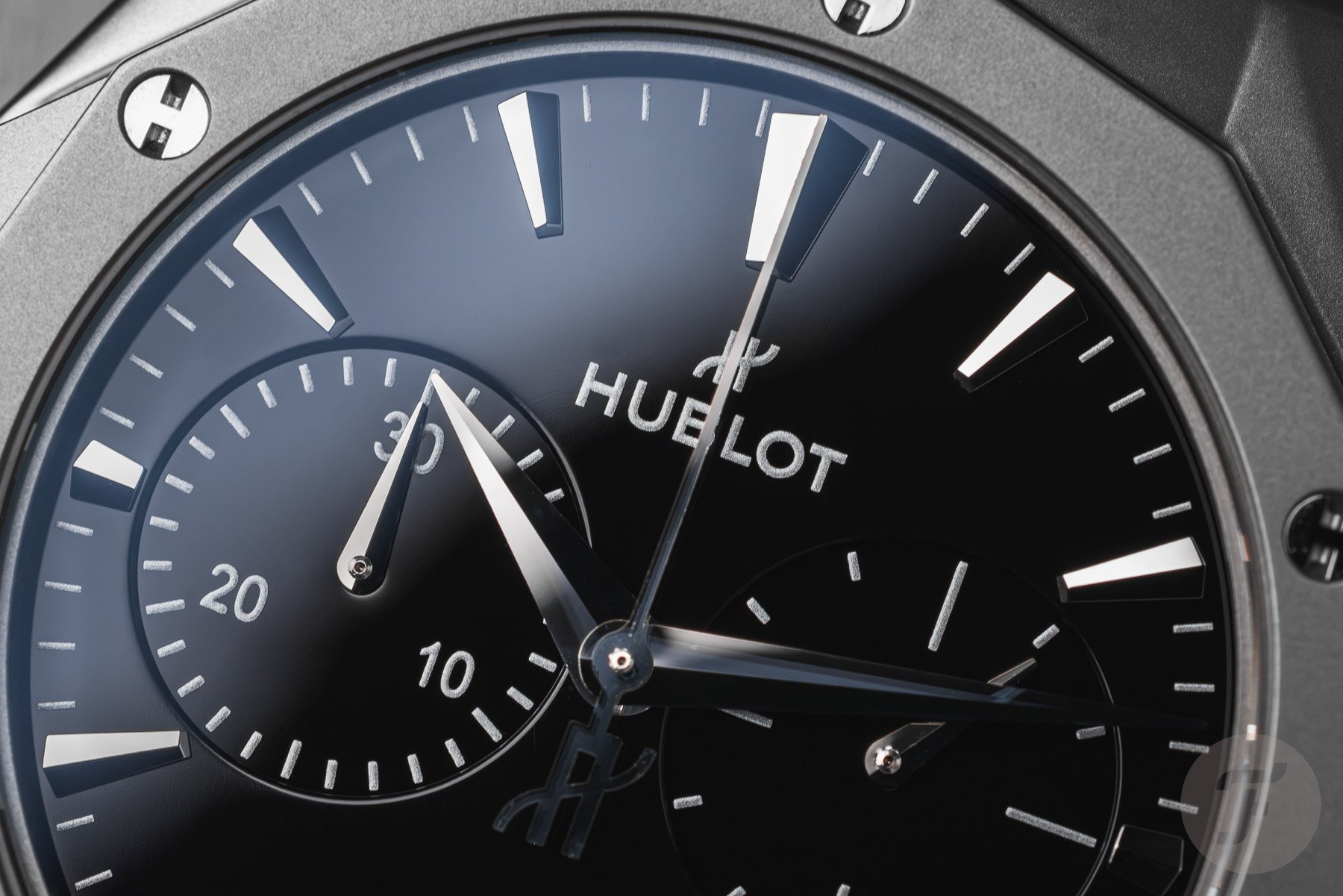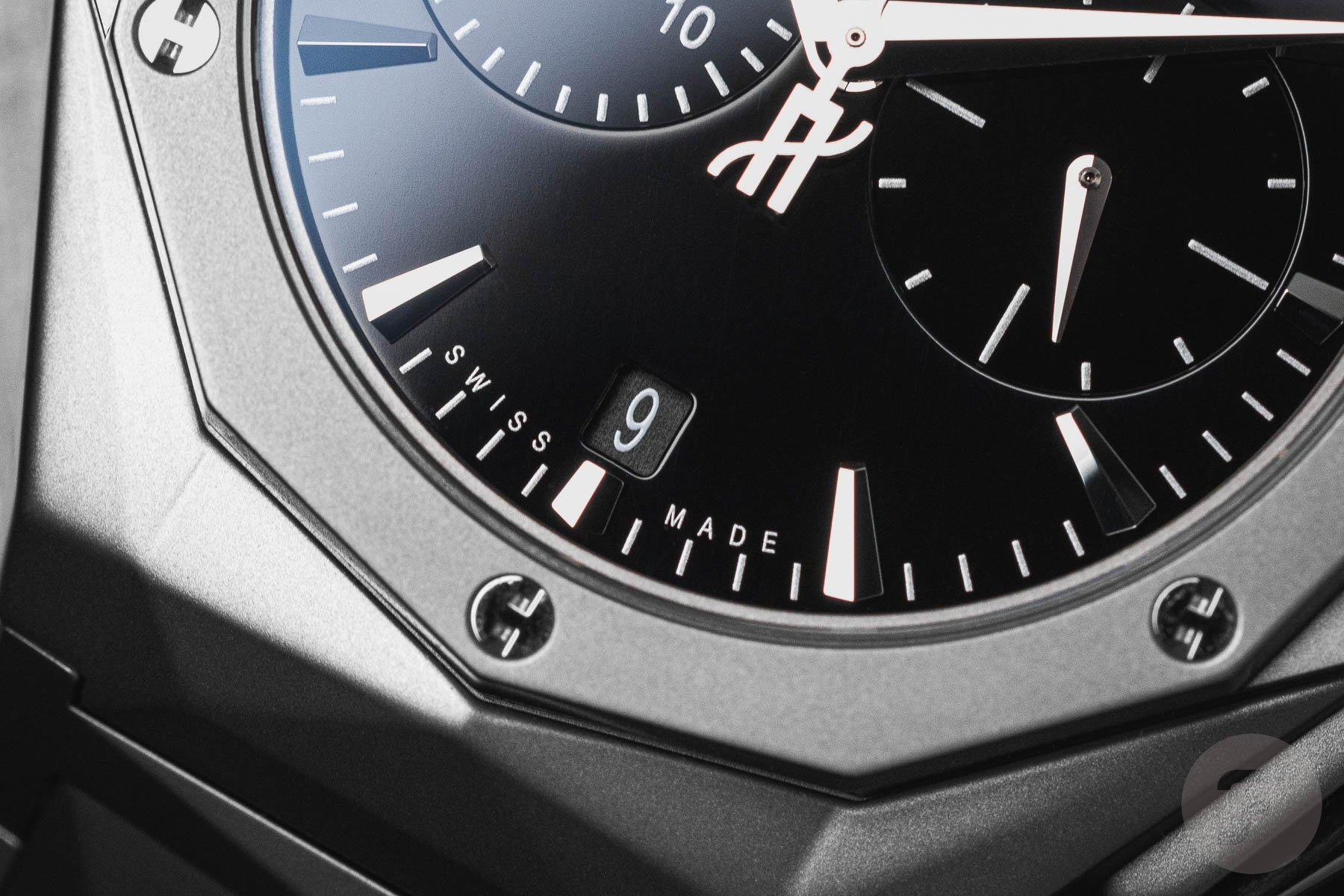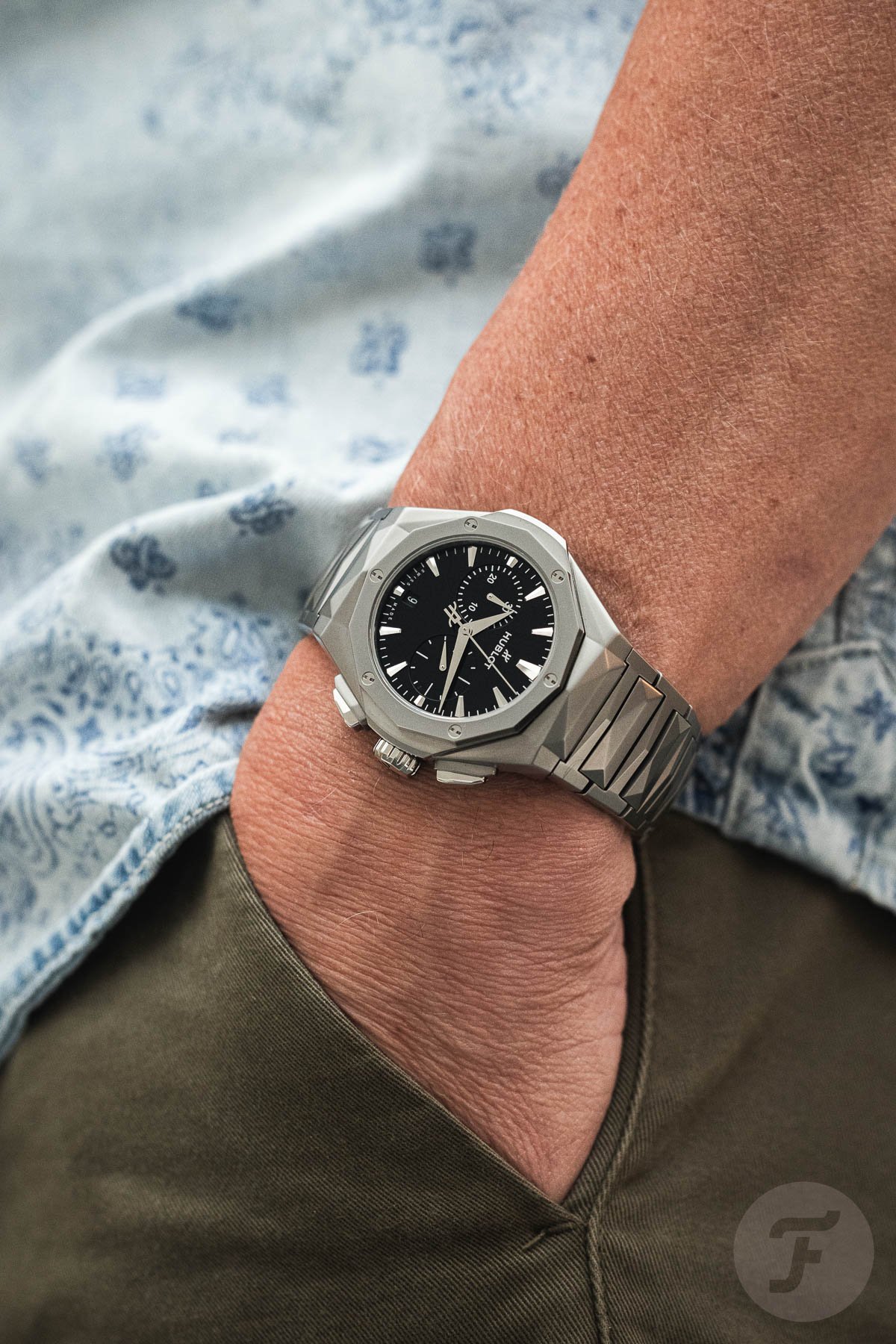Revisiting The Hublot Classic Fusion Chronograph Orlinski Titanium
Yes, you’ve seen it on my wrist before. It was during Watches and Wonders earlier this year when I came across the Hublot Classic Fusion Chronograph Orlinski Titanium. Well, two of them, actually — one on a black rubber strap (very classic Hublot) and one on an edgy titanium bracelet (very sculptural). In the live “W&W” report on Fratello, I wore the watch with a pink denim jacket. Yes, a pink denim jacket. And that’s exactly how to handle a Hublot. The brand from the Swiss town of Nyon doesn’t do traditional horology. Instead, it creates horological fashion — watches you mix and match with your attire. But can this particular Classic Fusion with its artistic touch also be a serious luxury sports watch for the open-minded watch crowd?
When I write that Hublot makes horological fashion, I also have to point out that the majority of the brand’s watches have a very strong urban-fashion vibe. If loud street couture is your thing, you will quite possibly also find that the colorful creations Hublot is most often associated with are to your taste. Big, bold, extravagant, exuberant, and colorful; the ceramic, carbon, King Gold, Magic Gold, and sapphire creations from Hublot are exactly that. Hublot’s Classic Fusion collection, however, is a bit different — not quite so loud, a bit more traditional.
Hublot Classic Fusion Chronograph Orlinski Titanium: the artist’s touch
The watches with the Classic Fusion moniker all have a visual link to the original Hublot from 1980. The watch shaped like and named after a porthole was the brainchild of Carlo Crocco. Gérald Genta paved the way for Crocco, who added a rubber strap to the gold watch. Forty-three years ago, it was a shocking and controversial move. Now, though, watches like this are in the catalog of almost every major high-end watch brand. The revolutionary of the 1980s is now the most conservative Hublot family member. But with the help of French neo-pop artist Richard Orlinski, the Classic Fusion can now show its artistic side.
Just like a gorilla
Orlinski’s signature design language fits the Classic Fusion incredibly well. There are other Orlinski-designed watches in the Hublot catalog. Both on and off the wrist, they’re impossible to miss because of size and color. The Classic Fusion Chronograph Orlinski Titanium, however, is different. There’s a run of 500 pieces with a rubber strap, but it’s the version with the titanium bracelet — reference 549.NI.1270.NI.ORL23 — that is the most balanced and interesting one if you ask me.
The micro-blasted bracelet with a titanium folding clasp shows diamond-cut center links that match the shapes of the case. And these faceted, angular forms are derivative of Orlinski’s famous sculptures. Just look at his gorilla sculptures, and you’ll know what I mean.
Entering Bvlgari Octo territory
With its 5ATM-water-resistant 41mm × 12mm case, the Classic Fusion is an easy-to-wear watch. It’s also unmistakably a Hublot, but it whispers the brand name in your ear and doesn’t shout it at you from a distance. And the subtle Orlinski design touches make me think of the Bvlgari Octo. The Octo Roma Chronograph to be precise. That’s a steel 42mm × 12.4mm chronograph powered by the automatic caliber BVL 399. That 4Hz movement with a 42-hour power reserve is a Bvlgari BVL 191 base caliber — Bvlgari calls it the “Solotempo” and states it’s an “in-house caliber” — with a Dubois-Dépraz chronograph module on top.
How do you explain that?
Underneath the shiny black dual-register dial of the Classic Fusion Chronograph Orlinski Titanium beats the automatic caliber HUB1153, an ETA-based movement with a Dubois-Dépraz module. You can expect a power reserve of 42 hours from this caliber. What you possibly also expect is that both watches have prices that are not too far apart. Well, not really. The steel Octo Roma Chronograph has a price of €9,900. The titanium Classic Fusion Chronograph Orlinski will set you back €19,000. Explaining that substantial €9,100 price difference by saying that the Hublot is a limited edition and made of titanium that is more difficult/expensive to machine doesn’t really cut it. And if you look at the movements, the Bvlgari kind of has the upper hand because of its in-house base.
Embracing the brand
So what explains the price difference between both watches? Brand perception, perhaps? I’m no expert, and I don’t have a market survey to back up what I’m about to say, but Bvlgari is a brand with a long history in the upper echelons of jewelry that all started in 1884 with Sotirio Bulgari. The brand also made a name for itself in the recent past by creating exceptionally thin watch movements, thus earning a lot of respect from the critical and normally hard-to-convince watch-loving crowd.
Hublot is younger, wilder, and more avant-garde. And although at the forefront of creating innovative materials — nearly unscratchable Magic Gold, for instance — the international watch family never really embraced the brand. Even the introduction of the Unico in-house chronograph movement (that should be in this watch) didn’t change that. Maybe it’s because LVMH, the mighty group that owns both Bvlgari and Hublot, sees that there’s no overlap between the two brands. If you want a Hublot, you want a Hublot. What another brand has to offer doesn’t matter. And therefore, comparing movements, materials, and even prices is irrelevant. Now, that is a very luxurious position to be in if that’s the case. In the world of Hublot, only the rules of Hublot apply.
How open-minded are you?
Time to answer the question. Is the Hublot Classic Fusion Chronograph Orlinski Titanium a serious luxury sports watch for the open-minded? Is it an alternative to chronographs from the usual suspects? I mentioned the Octo Roma Chronograph, but you could also think of the iconic Rolex Daytona, which is, theoretically, a less costly alternative. And what about a more racy alternative like the Omega Speedmaster Racing or the titanium Zenith Defy Extreme? And if you don’t mind a strap instead of a bracelet, €19K also buys you the new Breguet Type XX or Type 20, which have not only history but also a beautiful movement. All this is true, but the thing is, this Hublot doesn’t compete with the aforementioned watches. The Hublot Classic Fusion Chronograph Orlinski Titanium competes with other Hublot models, jewelry, a new travel bag, and maybe a vacation to Fiji.
For those who look at watches through the watchmaker’s magnifying glass, so to speak, the Classic Fusion Chronograph Orlinski Titanium doesn’t have the specs and story to match the price. This watch is all about looks for those who are all about looks. Mind you, I think this watch looks very, very good. I do consider myself open-minded, and I also attach great value to design, but I have to draw the line somewhere. This Hublot helped me draw it.
Still, if you’re still interested in taking a look at a complete spec list, you can do that right here. You will also get to see the Classic Fusion Chronograph Orlinski Titanium on a rubber strap plus a pink denim jacket — it’s from The Kooples, in case you’re wondering. It does seem to be the right attire to fit in the Hublot world. Having said that, I’m afraid I’ve seen too much of other (watch) worlds to apply for permanent residency.

